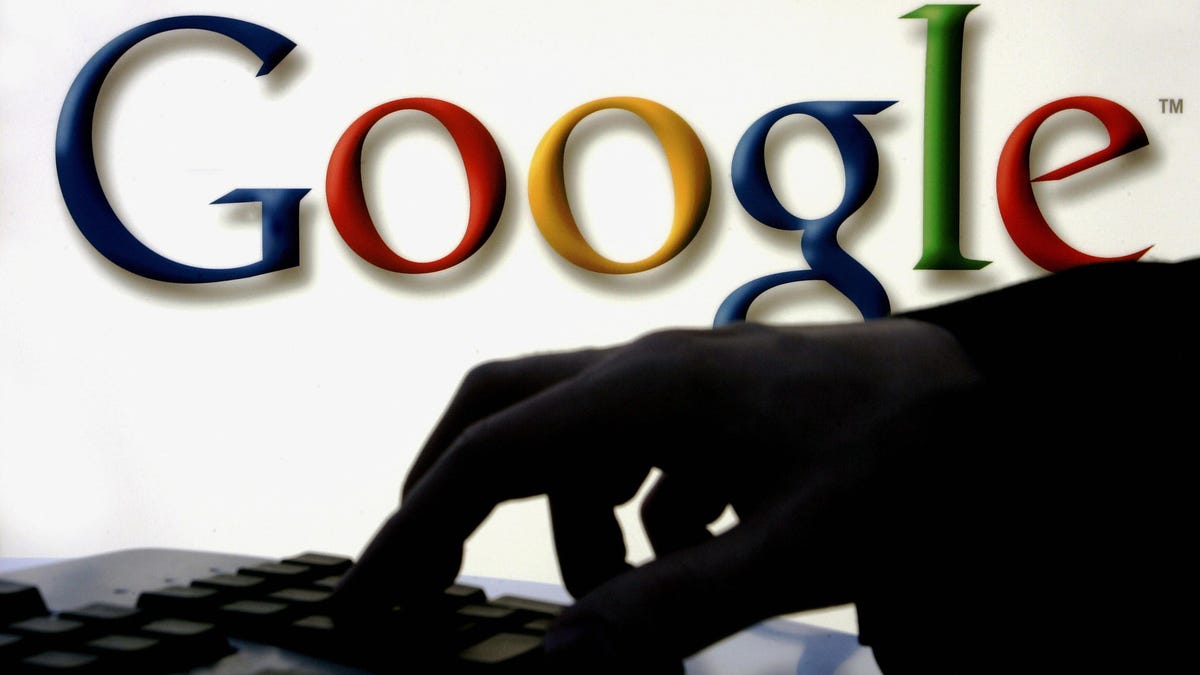
The Department of Justice and Google just rumbled their way past the halfway point of a landmark antitrust trial vying to answer a potentially industry-rupturing question: Does Google maintain its ironfisted stranglehold over internet search results because of its superior innovation or as a byproduct of ruthless anti-competitive jockeying and closed-door dealings? New documents revealed during the historic monopoly trial over the past week seem to lend more weight to the latter argument, and they could help explain why Google’s once dazzling search results anecdotally feel like they are getting worse for some.
It’s no secret that Google dominates search—the tech behemoth reportedly commands around 83% of the global search market share. Google has repeatedly defended that oddly uneven pie chart—both during the current trial and years before—by arguing its search product is simply superior to alternatives. Consumers, the argument goes, continuously choose Google due to its constant innovation and ease of use. Google does happen to be the default search engine on billions of devices, but grumpy customers can simply switch their default setting with a quick click (eh, okay well maybe more like 15 clicks) of a button.
But documents and testimony revealed by the Department of Justice this week complicate that already imperfect narrative. Lawyers for the government on Monday displayed a series of 2019 emails between then head of Google search Ben Gomes and colleagues where the executive expressed fears his team was “getting too involved with ads for the good of the product and company.” In later emails, Gomes said he was worried his team was “getting too close to the money.”
Those comments are important because, as Bloomberg points out, Google was known for erecting clear barriers distancing the product side of search from the advertising wing so that the former can focus on constantly improving user experience. But the documents presented at trial appear to show Gomes expressing concern that the company could be putting its advertising revenue profits ahead of consumer regard. Specifically, the documents point to a “Code Yellow” issued at the company for seven weeks following concerns it might fall short of its search revenue goals for the first quarter of 2019. Gomes, according to the documents, felt like he and others on the product side were tasked with focusing too much on revenue solutions.
“I think it is good for us to aspire to query growth and to aspire to more users,” Gomes wrote in an email to colleagues seen by reporters at the trial. “But I think we are getting too involved with ads for the good of the product and company.”
Prioritizing growth over quality?
Gomes reportedly sparred with Google over its decision to set its metrics on the total number of user queries. The former head of search reportedly balked at this metric because an improved search functionality should ideally prioritize answering users’ questions with as few clicks as possible. Google, the DOJ argued, benefits from users taking longer to search because the company can run ads against each of those queries. Around 80% of Google revenues reportedly come from advertising. If a user needs to refine their search a few times to get what they’re looking for, or if they have to scroll deeper through the results, more ads can be served to them.
An over-focus on driving up queries, Gomes warned, could hypothetically incentivize the company to worsen the product by disabling necessary features like spell correction or ranking improvement. Those extra queries could come at the end user’s expense. Gomes, during his testimony this week, said he did not think Google would actually go as far as to stoop to turning off spell correction.
“Most headcount (non assistant) for search has gone into projects that are growth oriented,” Gomes wrote in a draft email intended for then Google Head of Advertising Prabhakar Raghavan. “To the point, I worry that we are really not investing in research or speculation adequately.”
Gomes never ended up sending the email. Instead, he reportedly met with Raghavan and the two agreed to replace queries with a new metric measuring “groups of queries.” Still, the exchange highlights the inherent tensions that can arise between the product and advertising teams and their at times conflicting goals.
‘Hallmark sign of monopoly power’
A legal expert and antitrust advocate speaking with Gizmodo said these questions speak to the heart of the government’s case against Google. In an interview, American Economic Liberties Project Legal Counsel Lee Hepner said Google’s ability to potentially degrade a product without meaningfully losing users was a “hallmark sign of monopoly power.” Hepner likened this to more traditional anti-competition cases where monopolists can simply raise the prices of goods without improving their quality and, importantly, without any real threat of losing market share.
“It’s proof of Google’s monopoly over search that they are able to degrade their experience,” Hepner said. “Google is aware that degrading its search product is going to affect the user experience negatively.”
Tech Oversight Project Executive Director Kyle Morse echoed that sentiment, describing Search as the “linchpin of [Google’s] entire business model.”
“When people use Google search to plan a vacation or find a new restaurant, they think they’re getting the best results out there, but in reality, Google has degraded its search product in order to squeeze money from advertisers and ultimately consumers,” Morse added.
Google strongly pushed back against those criticisms in an email sent to Gizmodo.
“The organic results you see in Search are not affected by our ads systems or by the ads we show for a query,” a Google spokesperson said.
Aside from Gomes’ testimony, the DOJ released 22 new exhibits on Monday that, in various ways, show the lengths the company allegedly went to in order to maintain its search marketplace dominance. Google, according to testimony from the trial last week, dished out $26.3 billion in 2021 to become the default search engine across numerous browsers and mobile devices. A large chunk of that spending is believed to have gone to Apple to ensure Google is the default search engine on the iPhone.
Google’s power as the default search engine on a plethora of devices grinds against its argument that users simply chose them over competitors because they create a superior product. Internal Google documents released by the DOJ this week speak to that point as well. In one slide, a Google presenter admitted “users do not seem to make an active choice of a SE [search engine].” Elsewhere, an internal Google deck showed Google searches dropping 27% after Google was “unset” from the homepage.
Google’s relationship with Apple is particularly significant given its unilateral access to iPhone customers. Internal Google notes of a meeting between Sundar Pichai and Apple CEO Tim Cook released Monday by the DOJ give an interesting insight into that relationship. The meeting, which began as a discussion of the regulatory environment in D.C. eventually turned toward the question of Google’s place as the default search engine on Apple products.
Cook, according to the notes, told Pichai he believes the two companies were “deep partners; deeply connected where our services end and yours begin.” In another note from the meeting, Pichai reportedly said, “Our vision is that we work as if we are one company.” Pichai tried to distance himself from that line during this testimony on Monday.
“I don’t recall myself saying that line,” Pichai said during the trial, according to Fortune. At the same time, 2019 emails authored by Pichai appear to show the Google CEO concerned members of the company’s search team leaving for Apple or other potential rivals.
“I need monthly reports of all losses to key competitors on an ongoing basis and if anyone from search to Apple, please email me directly on every individual case.” Pichai wrote according to the recently released documents.
Other documents dating back to 2005 show Google emphatically pushing back against Microsoft’s decision to build search into its toolbar for the release of its Internet Explorer 7 web browser. In a letter sent to Microsoft at the time, Google argued it would be too difficult for users to find the setting to change the default search engine. These are remarkably similar to the arguments DuckDuckGo and other smaller search engines currently make against Google today. The emails to Microsoft even described them as maintaining “monopoly” products.
“We are deeply concerned about the potential for harm to the competitive process from Microsoft’s actions, particularly given Microsoft’s monopoly position with its Windows OS and its IE browser,” Google wrote at the time.
“By pushing out an update of IE with a new search box that will default to Microsoft’s own search engine in the vast majority of cases, Microsoft would gain a large number of search users for reasons having nothing to do with the merits of Microsoft’s search offerings,” Google added.
Judge reverses course on siloing evidence from public
These documents and others like them are part of a growing list of files pertaining to the antitrust trial posted on the DOJ’s website. Government lawyers, as well as speech advocates and members of the press, have needed to push Judge Amit Mehta, who’s presiding over the case, to actually let these documents see the light of day.
For the first few weeks of the trial, Mehta barred both the DOJ and Google from sharing much of any of the documents shared during the trial, which itself is already highly restrictive. The result: a history-defining antitrust trial largely relegated to the shadowy recesses of newspaper back pages and industry publications. Diane Rulke, an organizational behavior professor at Carnegie Mellon recently told the New York Times she believed the public’s lack of access to relevant information was “unprecedented in antitrust trials.”
Critics of Google’s business practices, like Hepner of the AELP, said the release of these documents can make the case against the tech giant all the more clear
“Over and over again we are seeing that Google is hyper-aware of the negative effects of their monopoly,” Hepner said. “That more than anything is the most compelling evidence coming out of this case.
Credit : Source Post






